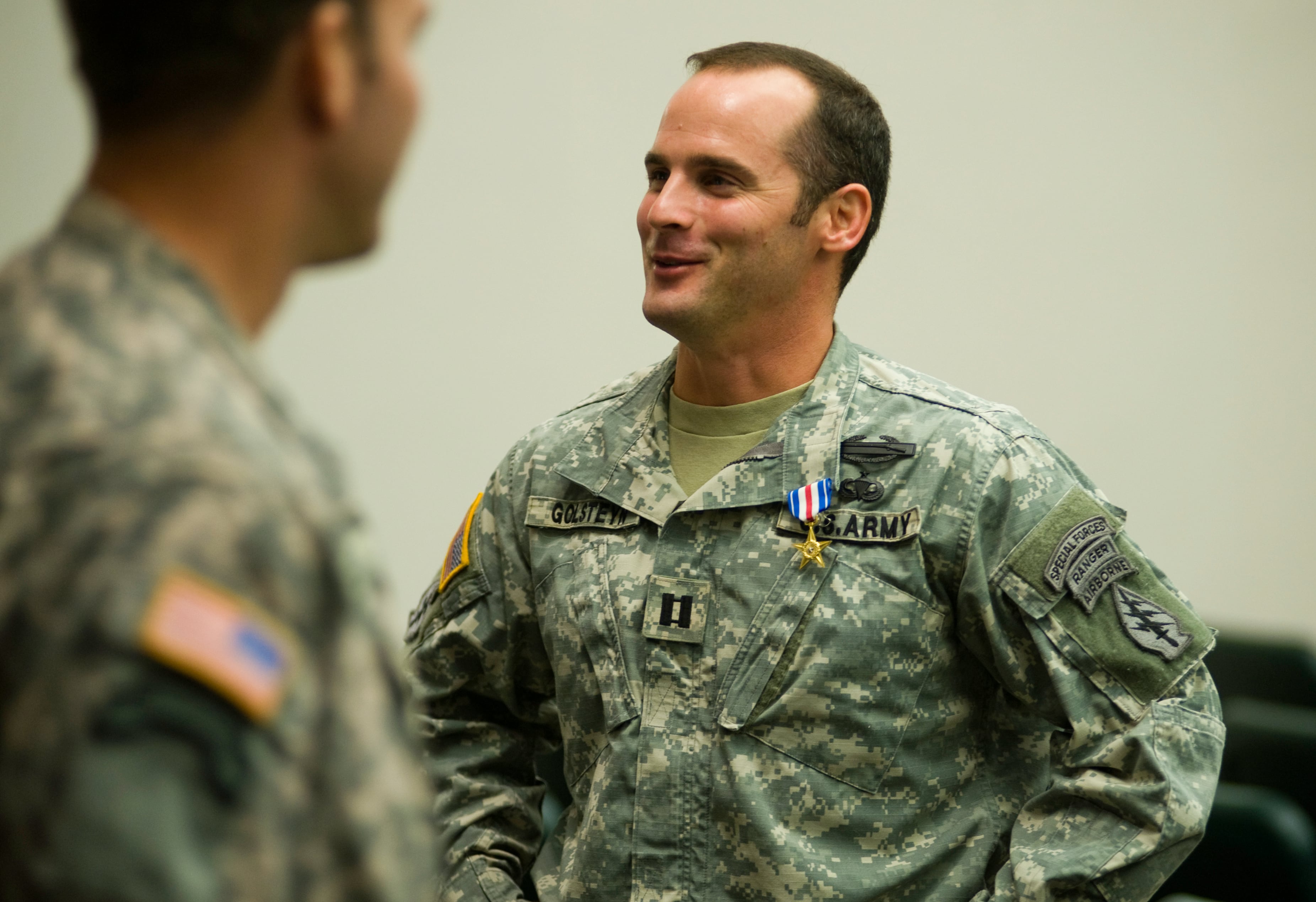U.S. Rep. Duncan Hunter tells Army Times he intends to introduce legislation that would strip service secretaries of the power to revoke awards from their troops.
McHugh rescinded Maj. Matt Golsteyn's award as the result of an investigation, the Army has said, although no details of Golsteyn's alleged misconduct has been publicly released.
Hunter, in commentaries posted via National Review and The Daily Beast, defended Golsteyn, describing him as a war hero and victim of a "witch hunt."

Then-Capt. Mathew l. Golsteyn is congratulated by fellow soldiers following a valor award ceremony on Jan. 4, 2011.
Photo Credit: James Robinson/The Fayetteville Observer
"There's no criminal charges on this guy. And they revoked a valor ward for a completely separate incident. They should be embarrassed," Hunter told Army Times.
"Although the CID investigation did not result in a prosecution, the Army has taken and is taking appropriate action in response to the evidence uncovered in the investigation. We will be providing a comprehensive explanation of the CID investigation and the decision to revoke the awards to the [House and Senate] Armed Services committees," Kasker wrote.
Under Army Regulation 600-8-22 (Military Awards), a commander can revoke a soldier's award if the commander learns a soldier acted criminally, or even unprofessionally, during the same period of time he or she performed actions meriting an award.
Hunter, a Republican from California, hope to add an amendment to the National Defense Authorization Act that would prevent future soldiers from having their medals revoked, specifically from a service secretary.
"It's very simple. A secretary appointee cannot revoke a valor award. Peroid," Hunter said, describing his proposal. "I'm pretty disappointed in McHugh and (Army Chief of Staff Gen. Ray) Odierno for their lack of leadership and not sticking up for their guys. ... They're hurting the entire Army."
Hunter's proposal would not deny other commanders the ability to revoke awards.
'Fruitless investigation'
"In any war, there will be confusing situations where reasonable men can reach different conclusions about what happened and why," Hunter and West wrote. "But once the CIA and the Army used a single polygraph to launch a fruitless three-year investigation, the judgment of senior officials back in Washington was called into question."
Digging through the trash
Reached by phone, Swenson declined to comment for this story.
Hunter said he has a letter from the Army that listed two reasons CID included Swenson in the investigation: The two were "potentially in the same area of operations" in Afghanistan. And Golsteyn listed Swenson as a friend in an Amazon review of West's book "The Wrong War: Grit, Strategy, and the Way Out of Afghanistan."
And Golsteyn listed Swenson as a friend in an Amazon review of West's book "The Wrong War: Grit, Strategy, and the Way Out of Afghanistan." [Do you have a copy of the letter?((KJ: This was the one they couldn't pass on for legal reasons.))]
[Do you have a copy of the letter?((KJ: This was the one they couldn't pass on for legal reasons.))]




